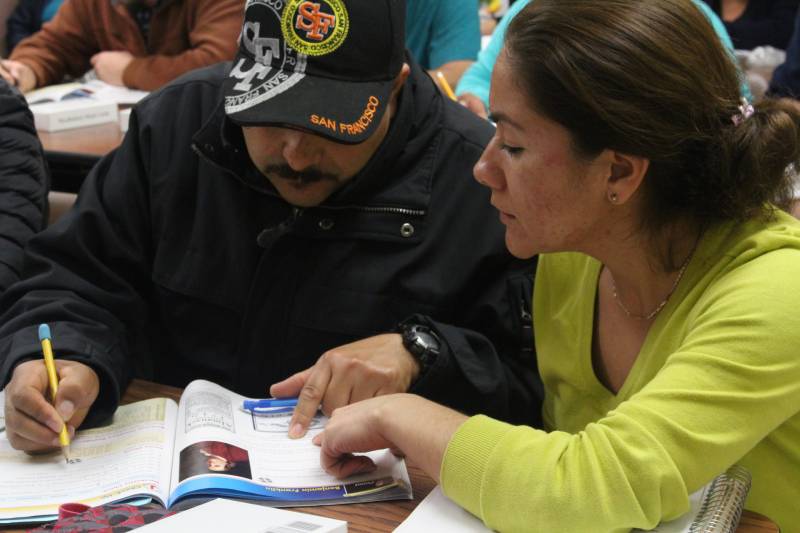This post was originally published on Dec. 1, 2020. It was updated Feb. 22, 2021 at 1 p.m.
The Biden administration is discarding a Trump-era civics test that immigrants must pass to become American citizens, claiming the test, which was launched in December 2020, could create unnecessary barriers to naturalization.
U.S. Citizenship and Immigration Services announced Monday it is reverting to a 2008 version of the civics test, which the agency said was thoroughly developed during a multiyear period and piloted before its implementation. The reversal is part of a broad review of the naturalization process announced by President Biden last month “to eliminate barriers and make the process more accessible to all eligible individuals,” according to a statement by the agency.
Immigrant advocates had criticized the 2020 version of the exam, which was longer and potentially more difficult, as a last-ditch effort in the waning weeks of Donald Trump’s presidency to prevent immigrants from gaining the benefits of U.S. citizenship, including the ability to vote.
“President Trump’s citizenship test was the product of bigotry and xenophobia, not civics, or a desire to improve the naturalization process,” Melissa Rodgers, who directs programs for the Immigrant Legal Resource Center in San Francisco, said in a statement. “We applaud USCIS and the Biden administration for taking this critical step.”
Immigrants who filed their application for citizenship between Dec. 1, 2020 and March 1, 2021 will have the option to take either the 2020 civics test or the 2008 version. USCIS said the 2020 test will be phased out on April 19, 2021.
Original post from Dec. 1, 2020
Starting today, new applicants to become U.S. citizens will be required to pass a revised civics test that is longer and potentially more difficult than the previous version that had been in place for more than a decade.
The 2020 version of the civics test could impact an estimated 2.2 million green card holders in California who are eligible to naturalize, the most of any state.
U.S. Citizenship and Immigration Services, the agency that processes naturalization applications, doubled the length of the oral exam. USCIS officers will now ask citizenship candidates 20 out of 128 possible questions. Applicants must answer 12 questions correctly in order to pass.

